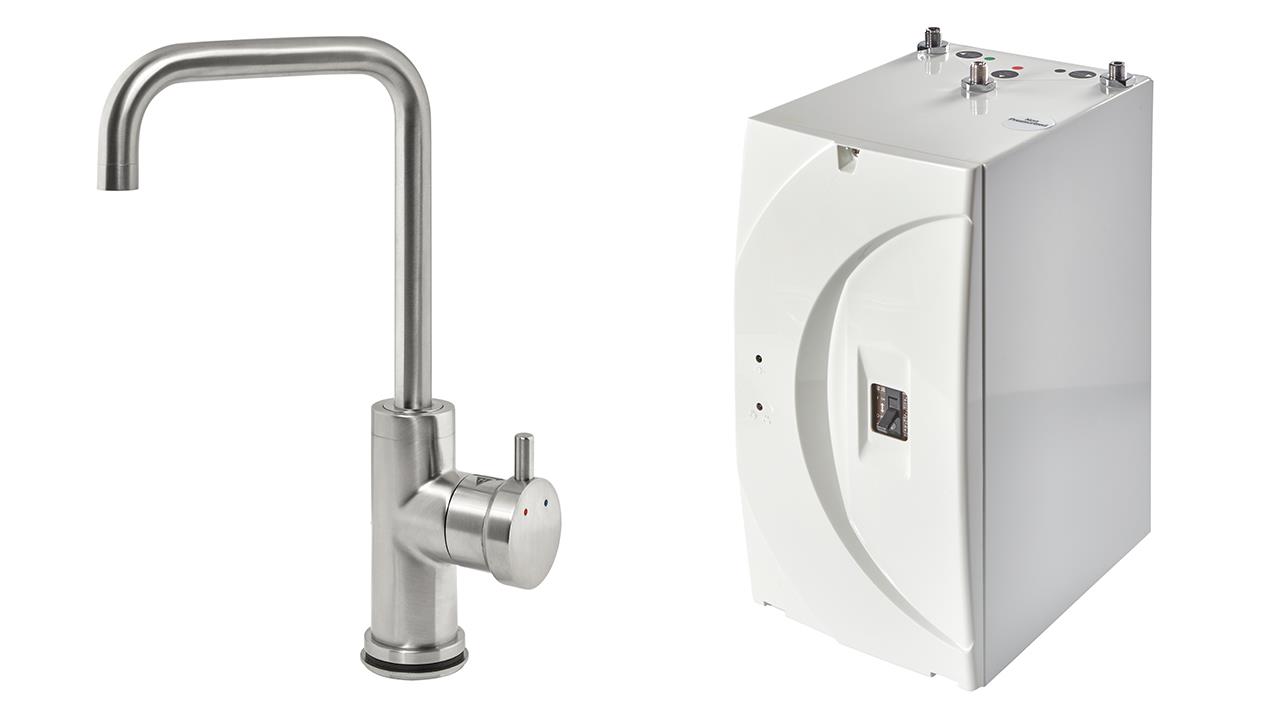

Rising temperatures, unpredictable weather patterns, and calls for improved efficiencies across the board have resulted in manufacturers focusing their efforts on producing products that not only meet consumers’ needs, but are sustainable too.
Extensive media coverage, the recent COP26 climate change conference, and the government’s target to cut emissions in the UK by 78% by 2035 compared to 1990 levels have made the public even more aware of sustainability issues and the negative impact human activities have on the environment. Additionally, fuel costs have increased and consumers are looking for ways to improve their carbon footprint while cutting utility costs.
This presents installers with an opportunity to increase their own income, as well as help customers in their attempts to reduce their outgoings and improve energy efficiency.
Scale of the issue
Many UK consumers are blissfully unaware that the quality of their water could impact their homes’ efficiency. The fact is that 60% of the UK has hard water, which has a high mineral content. This means that scale deposits will be commonplace in such homes and that limescale will build up inside household equipment.
Although the visible signs of limescale can be removed relatively easily with the right cleaning chemicals, deposits found inside equipment such as boilers, washing machines, showers, and dishwashers aren’t so simple to eradicate.
Installers are able to test customers’ water quality with a simple hardness test kit and explain the problems that hard water can cause around the home. Doing so will put them in a good position to suggest some sustainable solutions to the problems limescale causes.
Hard water contains minerals that calcify when heated, clinging to heating elements inside boilers and other household equipment.
According to British Water, just 1.6mm of scale build-up on a heating element makes it 12% less efficient, therefore more costly to run and, to make matters worse, it also reduces the life expectancy of equipment and increases the likelihood of breakdowns.
Quality counts
Filtering and water softening technology has progressed significantly over the years, with the latest generation of equipment offering an affordable and sustainable solution to hard water and the problems it causes.
It’s essential that installers are up to date with the latest product innovations in order to be able to recommend solutions to suit individual customers’ needs. The good thing about modern water softeners is that they are compatible with any boiler, so anyone can have total home protection from limescale.
High efficiency water softeners are the best option for households looking to improve their water quality and energy efficiency. The latest generation not only prevent limescale from forming, but they remove any existing deposits too.
To make life easier, installers should opt for compact water softeners that feature bypasses that remove much of the equipment previously required for installation. More compact units are also easier to site.
In addition, there are now battery-powered water softeners in addition to electric models to suit all customer requirements.
Eco option
It is vital that consumers have access to high quality drinking water in their homes as increasing consumption of bottled water is having a negative impact on the environment.
Quality drinking water is easy using water filtration systems and water purifiers (also known as reverse osmosis machines). These small units, which fit neatly under kitchen sinks, produce pure, crystal-clear water.
Water purifiers use semi-permeable 0.0001uM membranes, in a multi-stage filtration process, to remove scale, scum, heavy metals, chemicals, and microorganisms from water.
Some units also use a re-mineralising post filter, replenishing the healthy, naturally-occurring minerals while refreshing and improving the taste.
Carbon block filters are also used to reduce and remove unwanted impurities in water such as chlorine, herbicides, and pesticides – producing clean, ultra-clear and fresh-tasting water. Look out for units that feature auto shut-off heads, which allow cartridges to be changed without turning off the water supply.
These products can have a positive impact on the environment as they eliminate the need for plastic bottled water and they help to improve energy efficiency too. Some companies even offer these products complete with a stylish tap.
Water quality is important to consumers, so installers need to be able to inform them about the latest innovations in water filtration and softening technology in order to benefit. With all the advantages these products offer installers and end-users, it should be an easy sell.
If you'd like to keep up-to-date with the latest developments in the heating and plumbing industry, why not subscribe to our weekly newsletters? Just click the button below and you can ensure all the latest industry news and new product information lands in your inbox every week.